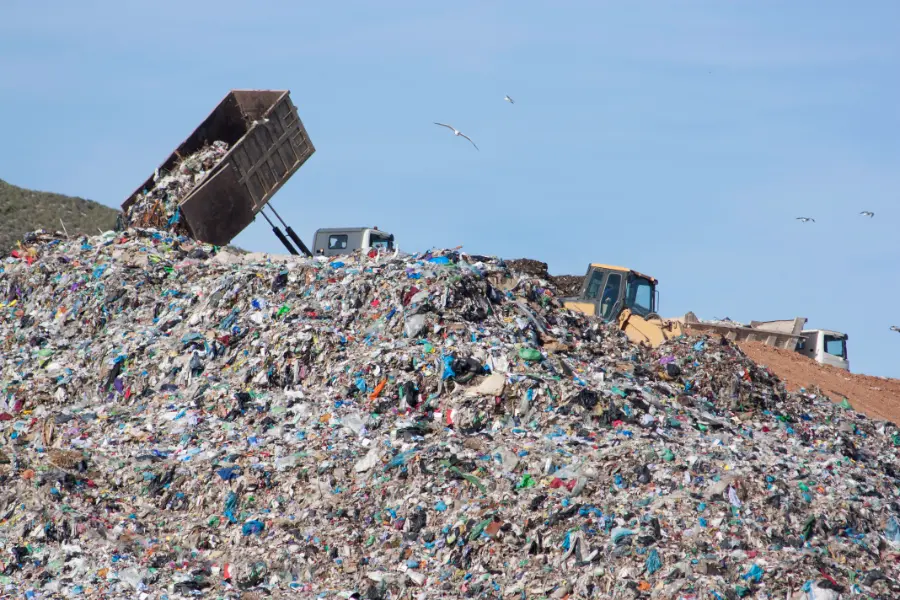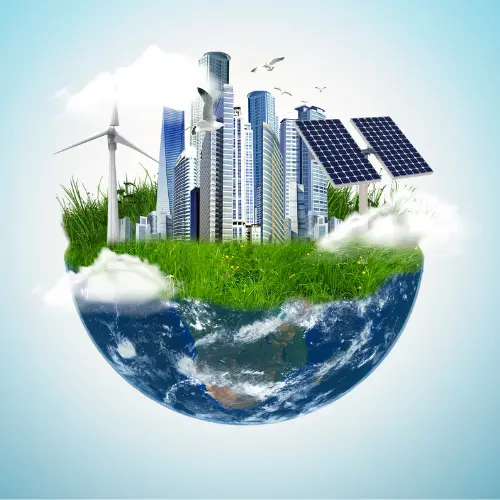Recycling is a way of reusing things. It is as simple as that. This is why it is so important that we recycle. Most of us have been taught to recycle whatever we can from an early age, but we rarely stop to think about the consequences of not taking part in this activity. That is why it is important to question what happens if society fails to recycle.
Given the population on earth today, we would all be overcome by a massive amount of garbage if we did not recycle. Everything we consume daily would end up in landfills, and there is only so much room for that. In addition, our natural resources would be rapidly depleted as a result.
Recycling is important on many levels. Not only does it help preserve our natural resources, but it also keeps the land and water clean and free of pollution. If you cannot imagine what the world would look like if we did not recycle, continue reading to discover what might just happen.
What Effects Does Not Recycling Have on the Environment?
Some of the many effects that not recycling will have on the environment include elevated pollution levels, landfills that quickly run out of space, and destroyed natural habitats. It is important to mitigate these areas by recycling whenever and whatever we possibly can.
These three main areas that not recycling adversely impact the environment with, can be detrimental to earth’s survival if not corrected. It is important to understand the negative impacts that not recycling can have so that we can live on a more sustainable planet in the future. It is also important that everyone worldwide learn about and practice recycling. The following is more information about the effects that not recycling can have on the environment.
Not Recycling Leads to an Increase in Pollution
If people were to stop recycling suddenly, the problem we already suffer from pollution would become even worse than it already is. For example, the chemical compounds that go into making Styrofoam would begin to seep into the soil. This would end up invading our water supply and potentially causing cancer.
When people think of pollution, they typically think of factories and fumes from vehicle gas exhaust pipes. While those are major contributors, trash is a major source of pollution as well. Since so many toxins and chemicals go into the making of many of the products that we use every day, we need to recycle them to avoid potential problems down the road.
Not Recycling Leads to Overburdened Landfills
Not everything that we use in this world can indeed be recycled. This is where landfills do come in handy. However, they are not designed to hold everything that we discard as a society each and every day. If nothing were ever recycled, the only logical place for those items to end up is in the landfill. There is simply not enough space to hold everything.
While landfills are designed to handle waste, we must be careful about the number of items we try to throw away. All of the chemicals and toxic waste that would make their way into landfills because of our failure to recycle would result in horrendous smells and a possible environmental disaster.
In order to prevent this from happening, we must work hard to ensure that landfills do not enter into an overflow situation. As individuals, we tend to think that this is somebody else’s problem. The reality is that overflowing landfills impact everyone on the face of the earth because of the potential issues that could result. Recycling is a way to overcome this. Not recycling is everybody’s problem.
Not Recycling Leads to the Destruction of Natural Habitats
There are only so many resources available in the world. When we fail to recycle, we are destroying the natural habitat around us. Many items are designed to be reused. Failing to do that means we must be continually forced to go back to the earth to take even more away than has already been given to us. Eventually, our planet will simply have no more to give.
Items such as aluminum, a variety of metals, certain types of plastics, paper, and much consume valuable resources from the natural habitat that we all enjoy. Failing to recycle these items means that we are not showing our love for the environment, and these same resources will eventually be unavailable to us.
What Happens to Items That Are Not Recycled?
The items we use and then discard become waste. Such trash is often not biodegradable. As such, they take up space in landfills where they will remain for thousands of years. Much of that same waste will not even make it to the landfill. Instead, they fill up oceans and mountains.
Items made of plastic are a perfect example. To date, more than 6 billion metric tons of plastic waste have been generated on earth. Of that total, less than 10 percent of those same plastics have ever been recycled. The rest end up in landfills or polluting our water system. If this trend continues, it is not without foundation to say the world will be overrun with plastic waste.
Even with all of the focus place on recycling programs in recent decades, society is still doing a horrendous job in this area. In fact, the amount of waste accumulating in landfills continues to increase exponentially. This means that we are not recycling products. Instead, we throw them away and force new ones to be made.
This lack of recycling has contributed to many problems in the world. One of those involves the impending climate crisis that we can no longer deny. There is also a negative impact on wildlife, population health, and various other components that we rely upon to continue to survive on a planet with a limited number of natural resources to offer us.
How Does Not Recycling Contribute to the Climate Crisis?
Massive accumulation of waste around the world contributes to climate change. Much of this occurs due to methane gas produced by waste sitting for years in landfills across the globe. Trash then ends up being burned and creates dangerous carbon dioxide levels, which heats up the earth.
Many scientists contend that climate change is the single greatest threat to the planet today. With so much trash being burned around the world on a daily basis, harmful pollutants are clouding the atmosphere. This has contributed to the destruction of the ozone layer, causing the temperature on the earth to gradually rise over time.
How Does Rising Population Impact Problems Caused by Not Recycling?
With the world’s population quickly approaching 8 billion people, the amount of waste being generated on a daily basis is astronomical. If the percentage of people not recycling around the world remains steady, that means that more waste is produced each and every year. This is a sustainable problem.
Many would argue that the increasing population creates an unavoidable problem when it comes to the generation of waste. This is simply not true. The same products that are not being recycled today could actually be kept out of the world’s landfills if better initiatives were developed.
If the percentage of people, not recycling begins to decrease gradually, the amount of waste ending up in landfills will lessen as well. This is irrespective of the number of people on earth. There are enough resources to sustain our population, but only if we engage in an effective recycling program that keeps much of the waste out of the landfills and oceans.
How Does Not Recycling Affect Wildlife?
When human waste makes its way back into our natural habitat, wildlife is adversely impacted. Much of the waste that is not recycled ends in oceans and lakes. Animals may ingest these items and die as a result. The toxins also pollute the world, which has a negative impact on marine life.
While it is true that various parts of the earth have various types of ecosystems, meaning that certain areas are more affected by human waste than others, the reality is that we are all a part of the same planet. For example, trash discarded in one country has been found several continents away. This means that wildlife across the planet cannot escape the damage humans are doing.
The natural cycle of life means that humans depend on wildlife for survival. We must protect the animals that roam the planet at all costs. Since wildlife do not have the intellectual capacity to decide what is healthy for them to consume, they end up ingesting just about everything imaginable. This includes all types of waste that we discard in deference to recycling.
When animals eat plastic or other forms of trash that humans discard, many of them die of hunger or malnutrition. These items cannot be digested, so those same animals sense that they are full, when in actuality, they are starving. So, a byproduct of humans failing to recycle is that we are literally starving the world’s wildlife to death.
How Does a Lack of Recycling Impact Public Health?
A failure to recycle adversely impacts public health in numerous ways. In addition to environmental problems that result, the pollution and chemical spill off will impact the lives of humans on virtually every corner of the planet. The more trash that is generated, the more pronounced this problem will become.
This issue is already overburdening our healthcare system. There are pockets of civilization that have limited access to clean drinking water. With the increased waste that is being generated in these areas, pollution is increasing because of items that are not being recycled. This has resulted in an increase of disease across virtually all pockets of society.
The following diseases and population health issues are exacerbated by the amount of waste currently being produced on earth today:
- Asthma
- Bacteria borne illnesses
- Low birth weight
- Premature birth
- Infectious diseases
- Congenital disabilities
- Cancer
- Cardiovascular disease
While these issues will not go away if individuals suddenly started to recycle as they should, their rate of prevalence would almost certainly begin to decline. It is important to keep harmful chemicals and other types of pollutants out of our air and water. An effective way of accomplishing this is to begin recycling and reusing applicable products.
What is the Economic Impact of Not Recycling?
The economic costs to society were no recycling to take place would be enormous. Healthcare costs alone would contribute to massive debt on the part of individuals and government medical systems. Local and national governments will also have to bear extreme costs just to keep landfills operating.
The cost to clean up the environment would be astronomical as well. Just imagine how polluted the waterways of the world would become if everything we consume were thrown away and never recycled. These items would eventually result in animals dying and humans becoming sick. This will all cost money to deal with.
In order to clean up the products that are discarded, we would be forced to engage in massive efforts to reverse the tide. We also have to take into account the additional cost to manufacturers. It is cheaper to produce products using recycled materials than it is to create something from scratch.
When we start to recycle as we should, manufacturing costs could actually decrease over time. Failing this, manufacturers have no choice but to increase prices to account for continually generating new containers and materials to produce their products. This is an economic cost that can be reversed when proper recycling takes place.
Wrap-Up
Now that you know what the world might look like if nobody recycled, it is more important than ever that we each do our part to save the environment. Recycling is critically important to creating the type of sustainable environment that we need to survive in. So encourage others around you to do their part and recycle as well.
Sources:


